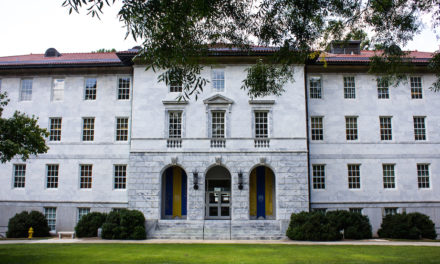Global Virus Network (GVN) inducted Emory University as a Center of Excellence for its accomplishments in virology research Thursday, Sept. 1, according to Robert Gallo, GVN co-founder, director of the Institute of Human Virology and Homer and Martha Gudelsky distinguished professor of medicine at the University of Maryland.
This recognition was “[facilitated] by Ray Schinazi [Researcher for Yerkes National Primate Research Center], whose work on developing drugs against viruses has been … essential,” Gallo said.
While this induction comes recently after Emory began work on Zika virus, with which Schinazi has had significant involvement, the decision also considered the myriad research spearheaded by Emory faculty. Gallo cited Emory’s work toward understanding HIV as an example, for which “there is no better [University] in the world.”
Director of the Institute for Human Infections and Immunity at University of Texas Medical Branch Scott Weaver added that Emory has a proven global influence in yellow fever, influenza and other chronic viral infection research.
“It’s overdue that [Emory is] involved in Global Virus Network,” Weaver said.
A group of about a dozen Center of Excellence directors voted within the last several weeks to induct Emory as a Center of Excellence, Gallo said. The vote to induct an institution is guided by consideration of its respective qualifications and characteristics, he added.
“Emory should have been thought of earlier [to be a Center of Excellence], really from the start,” Gallo said. “What a serious omission.”
An institution that serves as a Center of Excellence becomes part of a scientific network, Gallo said. “It’s a recognition and a request for [institutions] to be actively helping [one another] … consulting in the [research] projects.”
Centers of Excellence may also receive external funding at a higher frequency, given the strength of the GVN network, Gallo said. When organizations approach GVN with grants or donations, the network considers its Centers of Excellence and the strengths of each individual center. While this funding is not guaranteed, “what’s guaranteed is that you are in contact; you get information,” he said.
When an Irish company recently approached GVN with a $2 million research proposal, Gallo brought Emory into the conversation about funding because of its recent successes in Zika research, even though it had not yet been inducted as a Center of Excellence.
Emory researchers Schinazi and Mark Mulligan, director for the Hope Clinic of the Emory Vaccine Center, have played prominent roles in this project.
Weaver said that this virology project involves “assembling a bank of sera [blood plasma] from people who have been diagnosed definitively with Zika virus infection, and then acquiring such sera from people … [in hopes of collecting] a gold standard samples for testing.”
Weaver reflected on a Zika conference that occurred several months ago, at which he encountered Mulligan for the first time.
“We were talking, and he mentioned that through the [Emory] Vaccine Center, they had a number of travelers that had been diagnosed with Zika.” Emory researchers, therefore, were able to compare sera between travelers that had been treated with the vaccine and those who had not, allowing them to evaluate the effectiveness of some vaccines with the help of external funding.
“When the right projects come along … Emory will gain financially,” Gallo said.
Additional Centers of Excellence are located abroad, and some collaborate with international affiliates based in less-developed countries, including Nigeria and Vietnam.
This knowledge sharing becomes especially helpful in outbreak situations, including that of Zika virus, Weaver said. In facilitating a network of open communication, GVN Centers of Excellence have encouraged their leaders and virologists in Malaysia, Singapore and America to connect.
“It’s not just to help Emory,” Gallo said. “It’s to help the world.”
emily.sullivan@emory.edu | Emily Sullivan (18C) is from Blue Bell, Pa., majoring in international studies and minoring in ethics. She served most recently as news editor. Last summer, she interned with Atlanta Magazine. Emily dances whenever she can and is interested in the relationship between journalism and human rights issues.




